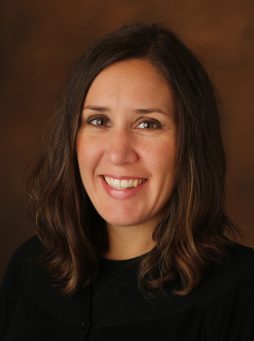Doctors sometimes describe their post-medical school residency as a steppingstone to their chosen specialty – the landscape where training, professional networking and work ethic all come together.
As the pandemic unfolded, the cost of COVID-19 came quickly to bear on medical schools and their prospective trainees when the Accreditation Council for Graduate Medical Education put a temporary halt to in-person visiting student rotations in spring 2020.
“Historically, we interact on rotations,” said Amy Whigham, M.D., director of Medical Student and Residency Training Innovation in the Department of Otolaryngology-Head and Neck Surgery at Vanderbilt University Medical Center.
Whigham described the process as a chance for faculty and aspiring residents to get to know one another, among other functions.
“We have as many as 40 or 50 visiting students per year, up to 12 a month, so this was critical.”
Optimizing Existing Tools
Facing the potential loss of these opportunities for the otolaryngology program, Whigham, residents, staff and other faculty members began design and development of a multifaceted approach to engaging with students virtually. They updated the departmental website and recruitment videos and, taking a cue from the real estate sector, developed a virtual tours of the campus.
The team eventually rolled out a four-week educational program with components that included faculty lectures, virtual grand rounds, faculty meet-and-greets, resident socials, and a nighttime on-call experience led by residents, among other activities to help make the most of the situation. Social media was used successfully to engage applicants and potentially influence Vanderbilt’s position on their rank lists.
“Initially it seemed overwhelming, because we’d never done any of this before,” Whigham said. “At first we saw only barriers, but then we began to see there were opportunities, as well.”
Minimizing Logistical Obstacles
Virtual engagement proved an effective way to widen the playing field to include applicants whose geographic location, family situation, or other personal condition limited travel. Financially, prospective residents could experience aspects of several programs without investing in multiple airline tickets, short-term housing and other expenses related to relocation, if accepted to the program.
As for interviews, top students who previously might have made visits to interview with two of their favorites, could accept multiple invitations to interview via Zoom or other virtual conduit.
“Virtual programming took away logistical problems,” Whigham said. Yet, it was still a challenge to meet the traditional goals of resident candidates, which includes getting an accurate impression of a place where they might invest several years of their life.
“Students could not meet us in person, they couldn’t see our campus, our offices or our ORs, and they couldn’t visit the city, yet they were making a commitment to being here for five years.”
Eben Rosenthal, M.D., chair of the Department of Otolaryngology-Head and Neck Surgery at Vanderbilt, noted that the approach taken by Whigham resulted in the department bringing in prospects from more diverse geographic and educational backgrounds.
Translating the Resident Experience
Among aspiring residents participating in a digital interview was current ENT intern Christina Dorismond, M.D., a graduate of the University of North Carolina School of Medicine.
“I applied in fall 2020 and had intended to do in-person rotations, but the programs started to move toward virtual programming,” she said.
“I think virtual interviews are hard,” Dorismond added. “They feel more structured and less natural. But I felt I still got a decent sense of how residents interacted with each other and how I might fit in there. It was a good alternative, given the circumstances.”
Access to current residents through the virtual on-call and rounds sessions “allowed us to engage with the residents and learn from them, so it mimics what we would have done had we been on-site,” Dorismond said. She came away thinking Vanderbilt is a “phenomenal place where people supported you and your goals.”
Blueprint for the Future
The visiting students underwent the virtual experience in 2020 as four groups totaling 49 students. With some modifications and the recruitment of another faculty member, Michael Topf, MD, the virtual educational program was extended to two more blocks of 15 students each in fall 2021.
“We think this approach can effectively meet the goals of both residency programs and applicants in providing education, networking and mentorship,” Whigham said. “Features of the virtual program may continue to be utilized for years to come.”




